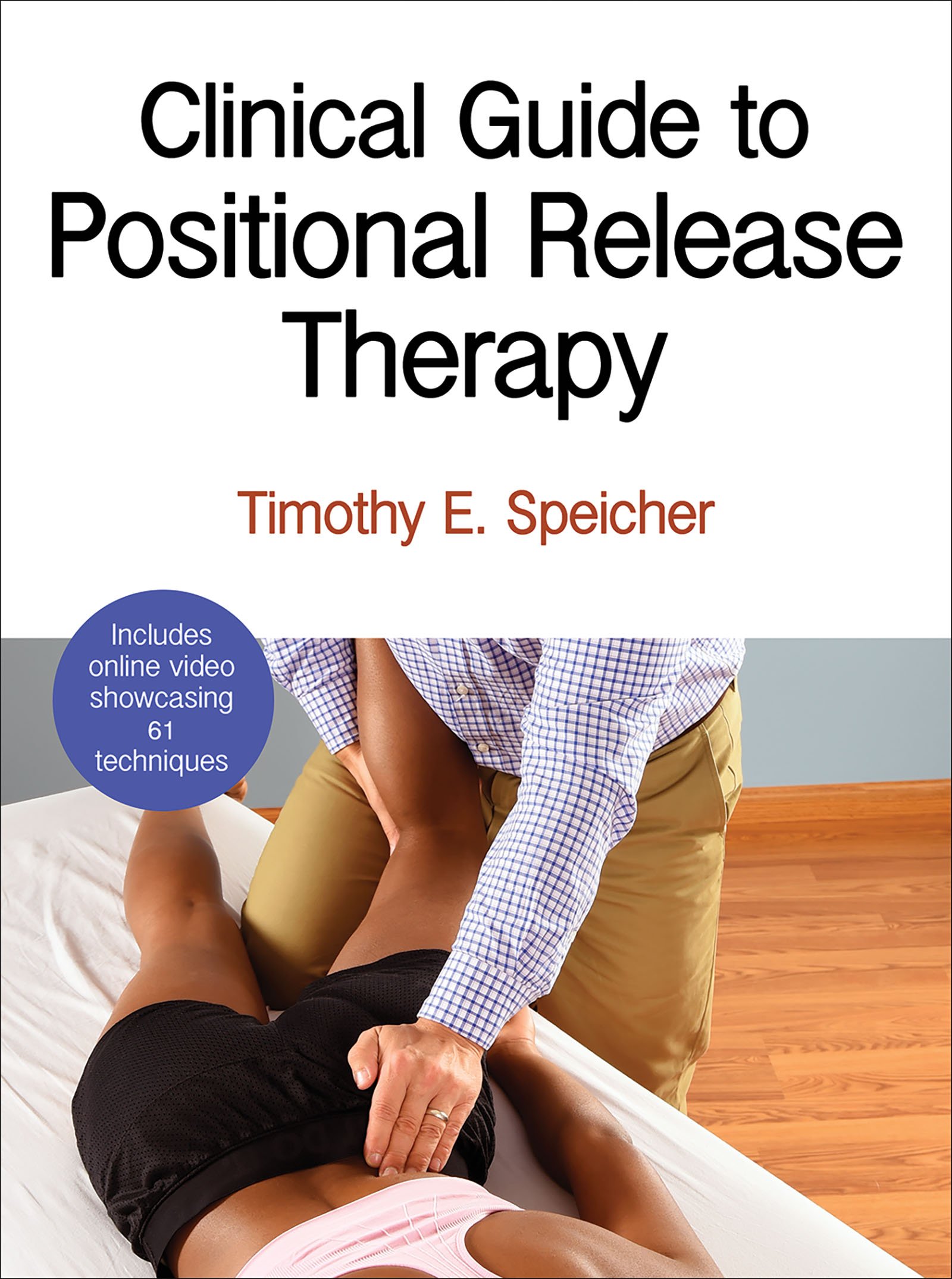

Clinical Guide to Positional Release Therapy With Web Resource provides professionals in the sports medicine and therapy fields with an easy-to-read reference on the clinical application of positional release therapy (PRT). The book is an invaluable resource for those who desire to learn, practice, and perfect the art of PRT to gently treat patients of all ages who have acute and chronic somatic dysfunction, including tightness and pain.
Author Timothy E. Speicher, president of the Positional Release Therapy Institute, uses contemporary science and evidence-based practice to provide health care practitioners—including athletic trainers, physical therapists, massage therapists, and chiropractors—with a manual of PRT treatment techniques. The text is also suitable for students enrolled in upper-level courses in athletic training, physical therapy, and massage therapy programs.
The highly visual book is organized in a manner that enables the reader to acquire a foundation of the applications, procedures, and theory of PRT. Part I explores the research surrounding PRT, providing articles that support the use of PRT through evidence-based practice. Readers will consider special populations, such as elderly patients, competitive athletes, and patients with disabilities. Part II explores PRT techniques by anatomical area. Each region (lower quarter, pelvis, spine, upper quarter, and cranium) contains an overview of common injury conditions and their myofascial triggers, differential diagnoses, and instructions on palpating and treating specific anatomical structures. Each chapter in part II also contains self-treatment techniques where appropriate.
Clinical Guide to Positional Release Therapy dedicates considerable attention to palpation instruction, a core skill that enables successful diagnoses and applications of many orthopedic assessments and therapeutic techniques. Readers also will gain knowledge of anatomical and kinesiological structures to ensure success in assessment. Application of adjunctive therapies, such as ultrasound, electronic stimulation, massage, joint stabilization, and therapeutic exercise, is provided throughout the text to complement PRT and facilitate an optimal healing environment.
Clinical Guide to Positional Release Therapy includes more than 400 full-color photos and illustrations. The unique layout of the book displays the anatomy, palpation, and treatment techniques in one or two pages, making the techniques visually easy for practitioners and students to follow and put into practice. In addition, scanning charts listing structures and mapping of the anatomical areas specific to the chapter content appear at the end of each chapter.
The text is supplemented by a web resource featuring 61 videos demonstrating various PRT techniques described in the book. The most common conditions and the techniques used to treat them are detailed, and Dr. Speicher provides advice about adapting the techniques to other conditions and muscle groups. The supplemental videos can be accessed online.
Whether students are just being introduced to PRT or medical professionals are already seasoned practitioners, Clinical Guide to Positional Release Therapy will assist them in using PRT in a simplified and structured manner to improve patient outcomes.